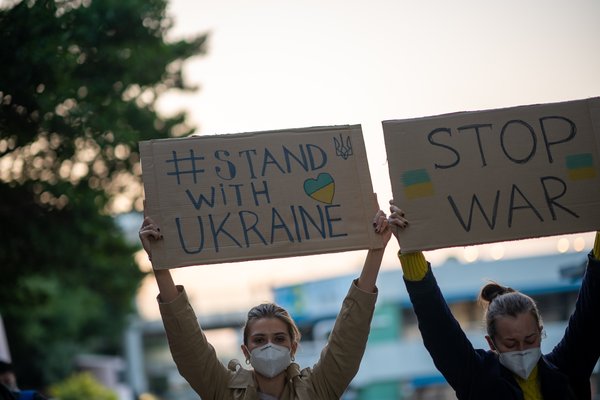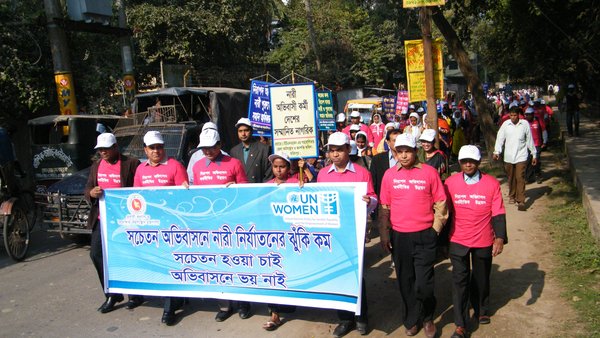
Demonstrations in Hamburg, Germany (2016), protesting deportation of refugees. Photo via Rasande Tyskar/Flickr. CC BY-NC 2.0
This policy brief was originally published via the United Nations University Centre for Policy Research (UNU-CPR). The brief was authored by Sherine El Taraboulsi-McCarthy, Lilian Miles, Sebastian Ille, and Felicity Kersting.
Introduction
Asylum seekers may make choices about when and how they travel in search of protection, but these choices are constrained by various factors, including context, time, and rapidly shifting and evolving circumstances. An asylum seeker from Cameroon, for example, may have the United Kingdom as their destination of choice but end up settling in Germany, and vice versa. An economic migrant may become a refugee during the migratory journey and a refugee may become an economic migrant due to an inability to support themselves and their family in the country where they first seek protection. The interplay between the individual actions of asylum seekers, the collective actions of others, and institutions (such as government policies) influence the journey of an asylum seeker from country of origin to country of destination. This interplay means that asylum seekers are part of complex social systems in which their beliefs, expectations, and decision-making adapt and change dynamically. Complex systems cannot be understood by only analysing an individual’s decision-making process. Instead, they require a study of the wider components and the social dynamics of the system in which asylum seekers operate.
In this policy brief, we draw on an extensive review of academic and policy literature, as well as the authors’ engagement with asylum seekers in the United Kingdom and in North Africa, to propose that policymakers adopt “complexity theory” - identifying and explaining patterns of change and feedback effects across dynamics systems - to understand the decision-making process of asylum seekers.



